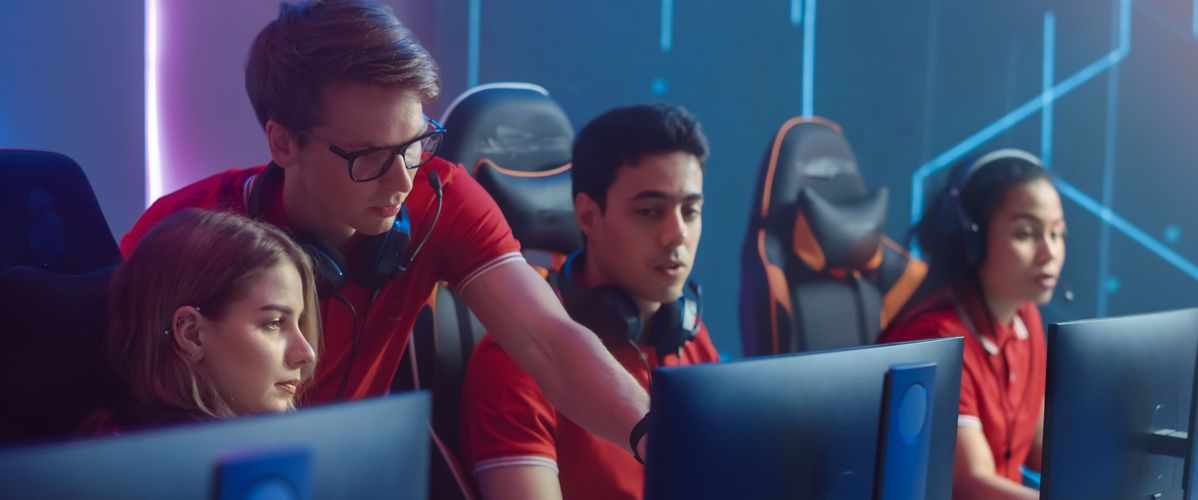• Artificial intelligence systems are increasingly used in the video games industry to boost creativity and accessibility. However, students seeking to master these innovative tools must understand their limitations and ethical implications.
• A better understanding of business and an awareness of copyright issues raised by AI contribute to the employability of new graduates.
How has the teaching of videogame creation evolved in recent years?
There have been significant changes both in teaching methods and pedagogical management. The widespread adoption of distance learning, notably in response to the Covid-19 pandemic, has led to greater integration of online teaching. In particular, it has paved the way for the inclusion of foreign teachers or teachers from different regions on courses, which has had the effect of enriching students’ educational experience. When I worked at the Gaming Campus, I brought in a French-speaking teacher who had been living abroad for 15 years, who helped to broaden students’ horizons.
AI has made it possible to explore concepts like eco-design and new creative possibilities, which make video games more accessible to a wider public.
How have new generations of students impacted teaching practice in the field of video games?
Teachers need to adapt their methods to meet the needs of a new generation of students accustomed to easy access to a multitude of online resources, while encouraging critical thinking and the practical application of theoretical concepts. In addition, they should recognise that students may be specialists in certain fields even before they enter training and encourage them to actively share their knowledge and experience. At the same time, teachers themselves should also make their own professional experience in the business available to the students. For example, when students are asked to work on a videogame level, the consideration that they already have access to extensive game design resources should enable us to work on more real-life examples. We also need to be aware that students are growing up in a world that has been marked change in the way we relate to emotions, which are highly stimulated, so we need to modify the way that we introduce emotions into games.
How has your work been affected by the emergence of artificial intelligence tools?
Artificial intelligence is increasingly playing a role in how we teach and play video games. For example, AI tools make it possible to deploy keyframes over different formats in no time at all, whereas before you had to spend a lot of time on this uninteresting task. But I remind students that their work has to be relevant, and to ensure that it is, they need to broaden their culture and to hone their historical and creative skills etc. AI also makes it possible to explore concepts such as eco-design, and to make games more accessible to a diverse audience (colour-blind, dichromatic, visually impaired, hearing impaired, etc.), while offering new creative possibilities both in design and in interactive storytelling.
AI is not always the solution
It is essential that students understand the biases and limits of AI so that they can use it ethically and effectively. They also need to master the art of prompt writing and be aware of the various intellectual property issues AI may raise. I explain to them that prompts are hard work, and on occasion it takes more time to perfect a prompt than it does to create an image from scratch. Prompts take time and so too does the creative process, which may be accelerated but cannot be shortened beyond a certain point. Working with AI also highlights the importance of historical and cultural knowledge, since it provides students with a framework when they are evaluating the accuracy of AI generated content. Finally, students need to understand that AI is not trying to convey emotions or stories. For example, if they need to design a character who is weary of life, it’s up to them to create a mesh for a posture that reflects that.
What are the difficulties faced by new graduates?
Today there are too many students entering the video games market. And given the attractiveness of the salaries, not many of them wish to stay in France. They also lack awareness of copyright and business issues, and their employment prospects are unclear. The videogame industry could give them more support by integrating these essential topics into educational programs, providing mentoring and professional development opportunities, and promoting diversity and inclusion to reflect the true diversity of society.
 Anaïs Cravic
Anaïs Cravic









